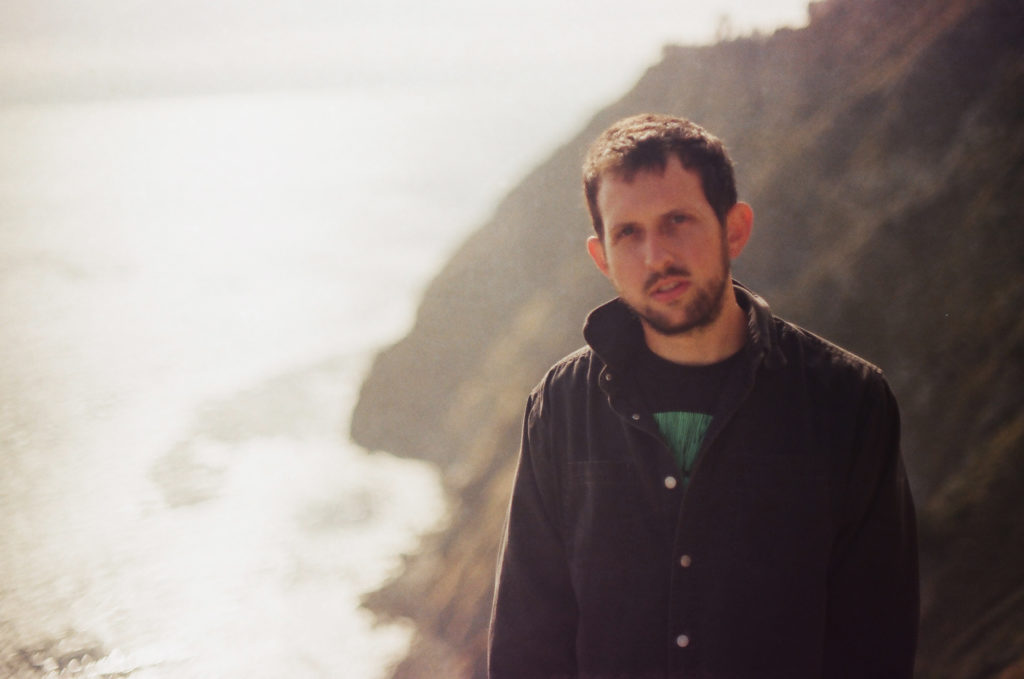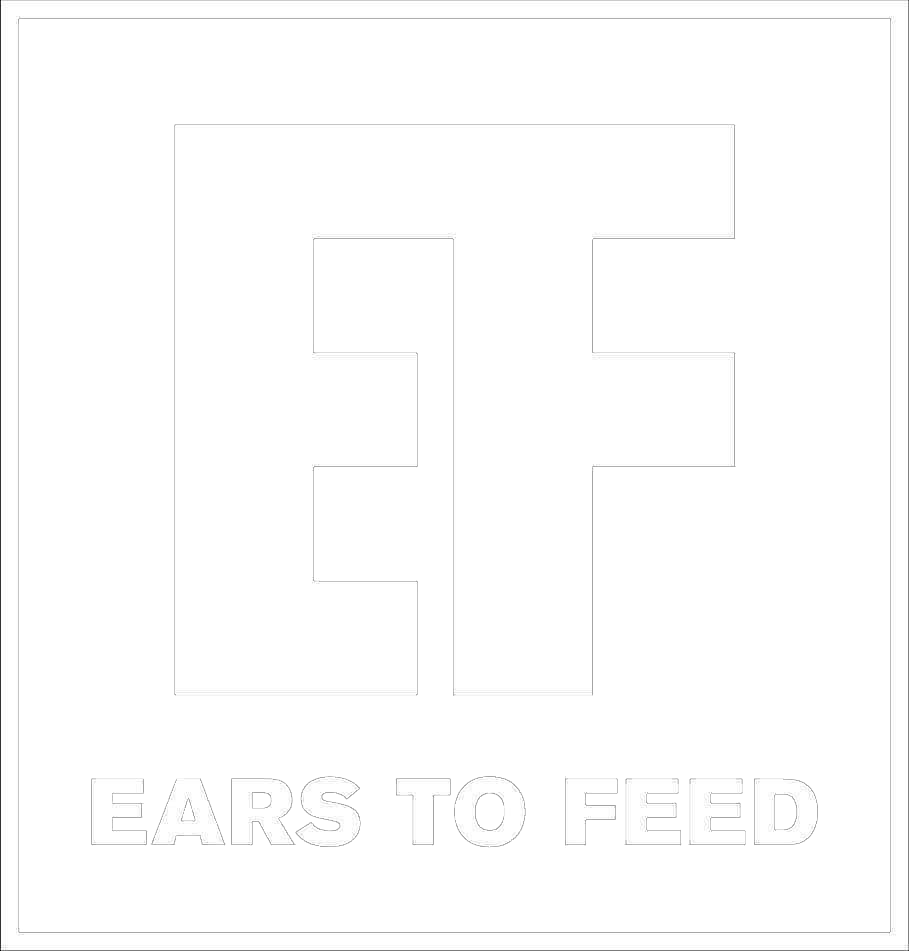Brooklyn’s Alibi’s sophomore album, The Moments You Spend With Yourself, is a personal experience composed of fragments of memories and fleeting patches of peace.
Alibi is the alias of musician Mike Naideau, best known as founding member of shoegaze outfit Giant Peach and an active participant in the Brooklyn punk scene.
In September 2019, Naideau released his solo debut effort Become Your One, an intimate entry point into the stream of consciousness songwriting that proliferates his material.
This stream overflows on his follow-up The Moments You Spend With Yourself, a perfect title as listeners reflect upon a year spent in isolation as the pandemic forced us to sever all physical connection.
While some tracks were conceived after the release of his debut, the album as a whole was conceived when Naideau embarked on a trip to Guatemala in the early months of 2020.
Infusing field recordings, Naideau brings the atmosphere of his travels to the forefront of his music whether it be the hot morning sun rising over the Guatemalan landscape (“July”) or the crackling from a fire pit before night takes hold (“Stars Pt. 2”).
Upon his return to the city just a couple of weeks before New York would go into lockdown, Naideau laid down his recordings with a cast of key collaborators including his brother Ryan Naideau of Warthog, multi-instrumentalist Ryan J. Eilbeck, bassist Brandon Evans and guitarist Joe Katz.
Bare percussive elements, interweaving guitars, a solemn trumpet and Naideau’s almost spoken word delivery mix together to birth an existential fever dream. A variety of emotions that swivel from the humoristic irony of “Lexus” to the heart on your sleeve tenderness of “Motionless” lay out Naideau’s deep sense of identity. The album reads as a journey of self-discovery at a time surrounded with uncertainty.
Below, Naideau and Eilbeck discuss how the album was shaped, their love for the New York skyline and their songwriting process.
You can also listen to an exclusive stream of the album below with a premiere of his self-directed video for “July.”

MN = Mike Naideau
RJE = Ryan J. Eilbeck
You recorded this on a trip to Guatemala during March of 2020, can you describe how the project came to be?
MN: This record has been in the works loosely since 2019. Some songs (“July,” “Waterfront” and “Stars, Pt. 2”) have roots that date far back. But yes, it was largely conceptualized in 2020. Foundations and most of the drums fell into place in the beginning of 2020 when I left for Guatemala. While I was there I recorded most of the field recordings, wrote lyrics and began to conceptualize the project as a whole.
When I returned, Ryan [Eilbeck] and I spent three days recording together in New York in March of 2020. He brought an old microphone from Ohio that we used. We pushed all sounds through a Zoom multi-effects processor and a cassette 4-track.
The process of recording this album, in my mind, was a series of reactions: Me reacting to life. Brandon [Evans] and my brother, on bass and percussion respectively, reacting to vocal-less demos—feeling out the music while tracking most final takes were initial or secondary reactions. This manifested a new set of palettes. I erased instrumental placeholders, added keyboards, scrapped songs, etc., and had new scratch beginnings of everything.
Ryan arrived in New York with his trumpet and mallet—instruments that provided sounds that shaped the record’s characteristics. With each step forward in the process, consciousness grew, which helped the present moment feel consistently correct. Lyrics were drawn from multiple sources—photographs, dreams—and the record’s overarching narrative took off in an extremely personal yet surreal direction. Songs were pushed in directions I never would have conceived of without all of the intertwining collaboration. I amassed a huge folder of .wav files and a semi-sense of where they were all intended to land. The bass track at the end of “Motionless”, for example, wasn’t even meant for that song, but somehow it completed it.
I spent much of the late part of 2020 in California, not mixing or editing, but simply listening back to a half-finished album through a distanced lens. My time there was extremely grounding: mornings spent practicing guitar, consumed by clouds on the rocky coast, wading in rivers upstream, devouring the sunsets at China Beach, waking up to find a candle still burning, biking to bookstores, etc.
When I returned to New York, the edits that needed to be made were clear. In the end, all of the principal ideas that came to be on the record presented themselves to us, and we didn’t have to do anything except react to them with a sense of acceptance. We became the medium. It took a while to finish this record, but the creation process provided us all with ample space for experimentation, and I am grateful for that.
In a press release describing your second track “Lexus,” you said you found comfort in isolation. Can you share how these solo trips and the mood of your surroundings affected your songwriting process?
MN: The sonic foundation of “Lexus” is pretty simple: repetitive guitar riff, manifested slowly over time, in a manner that I would liken to the way a sky is revealed behind a dissipating cloud. When I’m alone I often pick up an acoustic guitar and play. The riffs that stick are the ones that I remember instinctually, the ones that feel most expressive. The words in Red House Painters’ “Void” capture this sort of feeling pretty well.
But yes, solo traveling has definitely informed my writing and music-making. To me it’s like being in a hot shower, with regards to the way in which intense stimulation (from being in new environments or, from heat, in the case of the shower) influences the sort of waves one’s brain produces.
In fact, my words in “Lexus” were written in a sort of transcendent moment I had while I was in a thermal pool in Zunil, Guatemala, by myself, late one night. Surrounded by forest and very isolated, swimming slowly around ancient rocks. I achieved a really interesting level of consciousness in that moment—consciousness of impermanence. And then all these words, just like a guitar riff, manifested patiently in my head. I repeated them so as not to forget, and then hurried back to the little cabin where I was staying to write them down. This page in my notebook, at least to me, encapsulates so much. I also feel like Cecilia’s artwork for this record very poetically illustrates these sorts of notions.
Did you find difficulty in the collaborative process in the time of COVID, or did it make things easier?
RJE: This recording was made just before COVID became really real in my own mind, and maybe our collective minds in the US. The subway had begun making its foretelling announcements — Mike’s roommate generously bought us hand sanitizer which I raised an eyebrow at only to be rocked by reality shortly after. It was almost like we got away with something we’d soon find more precious. We already had distance — NYC to Columbus, OH. Later in the same week, I was out of work and we were staying in and definitely not meeting to mix it. On my end, it was a comfort to have this recording to consider during quarantine.
On “Waterfront” and “Motionless,” you have a deep appreciation of the New York City skyline. What do you find so inspirational about looking upon the city and do you have a favorite spot to view it?
MN: The colors. The calm intensity. It’s dead quiet from afar, yet meets your stare with a massive, extremely grounding weight. I’ve spent countless nights sitting, reflecting and writing next to the East River. The skyline can become a reflection, the city’s lights can provide answers. Favorite spots would be either Northern Brooklyn or the East 37th St. waterfront in Manhattan.
Upon first listens, I feel you have a kinship to material from Microphones and Spiritualized. What artists were you listening to on your treks that were influential references for the album?
RJE: I was into the seriously minimal and mostly vocal Leadbelly’s Last Sessions from Smithsonian Folkways and the sparse recordings from Anne Briggs, also mostly vocals. When I heard Mike’s songs I actually felt some excitement and melodic influence of 90’s emotional post punk – I thought of Slint’s Spiderland when I vocalized on “Lexus.”
MN: Phil Elverum of The Microphones has had a huge influence on me as a person since the early 2000’s. I’ve kept up with his work. “Lost Wisdom, Pt. 2” hit hard. The A Crow… tour was unreal. But in addition to all of Phil’s stuff, the Guatemala trek and the album was colored by specific artists, notably: Eluvium, A Winged Victory For The Sullen and Ryuichi Sakamoto.
I lean into the ambient when traveling. The open simplicity that often characterizes the genre lends itself well to soundtracking hyper-specific experiences (running through the woods with headphones on, etc.). Billie Holiday also always somehow seems to be a staple of mine. Whether I’m playing one of her cassettes or her songs come floating through my hotel room window, she never seems to be very far away.
Considering how difficult the past year has been on our mental health, what have been some routines, films, books or habits that have helped you cope?
RJE: Listening to entire records with headphones on while reading the liner notes, tape recording on cassette tapes, flirting with cigarettes, general silliness with my partner and her son.
MN: Running in the woods, biking in New York and in San Francisco, Plum Village’s dharma talks and various works by Bell Hooks.
The video you recorded for “July” is a collage of scenes from your trip to Mexico and you have a valued sense of capturing ordinary fleeting moments that most would overlook. Do you have a sense of why you felt these embodied the track and your interest in providing visual movements to your music?
MN: I recognize that my music likely makes little sense to most who experience it. But when I revisit it myself, I often experience a sort of time-travel experience. This is one of the primary reasons why I make art. And just as I spoke before about finding comfort in isolation, I think it’s significant to note that comfort can also be found in documenting in order to let go. Writing, recording, finalizing, releasing these, for me, are all parts of the process of processing. Field recording has always intrigued me for similar reasons.
When a recording of a moment, of a place, of everyday life, is included in a song, it becomes solidified in a very unique way. It takes on new emotion, which then allows one to travel to that moment in time, and truly be there. I can close my eyes and revisit environments. This was the sort of mindset that inspired the “July” video. The song itself is a melancholy, yet calm and hopeful opening track. To me, its story remains untold. The visuals provide context when thrown against the keys and trumpet, but you’ll see what you see.
Band photo credit: Shaina Tsan
